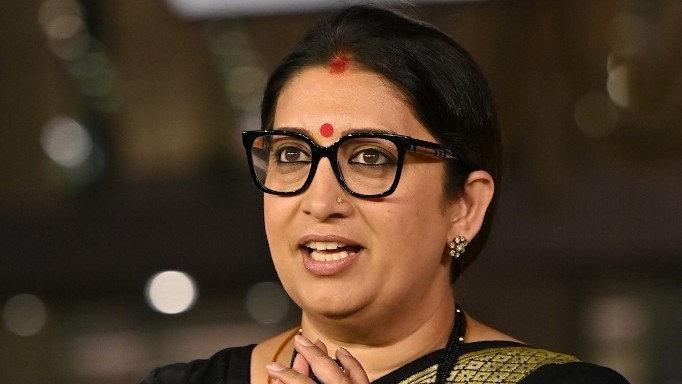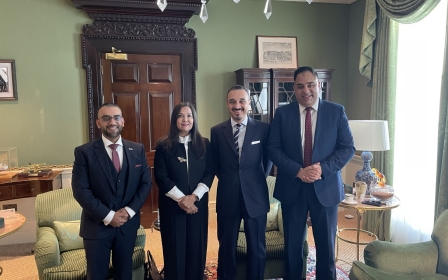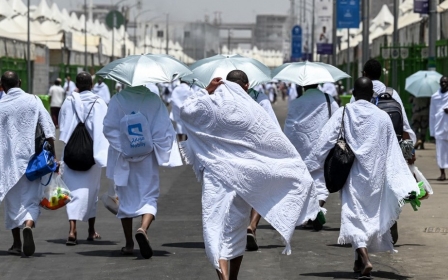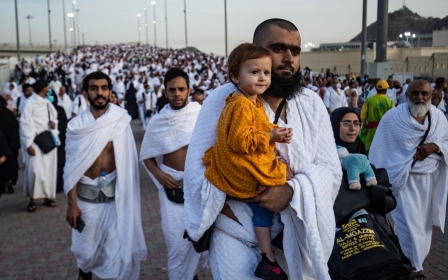Saudi Arabia: BJP minister leads rare non-Muslim Indian delegation to Medina

The Bharatiya Janata Party (BJP), India's ruling party, sent a delegation to Saudi Arabia on Monday, which visited the Muslim holy city of Medina.
Led by Minority Affairs Minister Smriti Irani, the two-day official visit is a rare instance of a non-Muslim dignitary being given access to the city, which is the resting place of the Prophet Muhammad.
While non-Muslims are allowed in Medina, they are not allowed to enter beyond the perimeter of the Prophet's Mosque, also known as Masjid Nabwi.
Foreign diplomats from non-Muslim countries are rarely taken to the area, which many Muslims believe should not serve as a tourist site.
Irani said the visit was aimed at strengthening bilateral relations and “gaining valuable insights into the arrangements required for the upcoming Hajj pilgrimage”.
New MEE newsletter: Jerusalem Dispatch
Sign up to get the latest insights and analysis on Israel-Palestine, alongside Turkey Unpacked and other MEE newsletters
The visit comes after Irani signed the 2024 Bilateral Haj Agreement with the Saudi Minister of Hajj and Umrah Tawfiq bin Fawzan al-Rabiah on 7 January.
The agreement states that India has been granted a quota of 175,025 pilgrims for this year’s Hajj pilgrimage.
In a post published on social media platform X, Irani called the visit a “historic journey”.
“The significance of the visit to these sites courtesy [of] Saudi officials, intertwined with early Islamic history, underscores the depth of our cultural and spiritual engagement,” she wrote.
An official spokesperson said in a statement that this was a landmark development and the “unprecedented visit marked the first time a non-Muslim delegation had been welcomed in Medina, underscoring the exceptional nature of India-Saudi Arabia bilateral relations.”
Irani was joined by a number of senior officials during the visit, including the minister of external affairs.
Fostering bilateral relations
During the visit, Irani also met with Saudi and Indian business professionals to explore investment opportunities and foster stronger bilateral relations between the states.
There is a total ban on non-Muslims entering Mecca as well as parts of the holy city of Medina. Attempting to enter can result in penalties, including fines or deportation.
Prior to entering Mecca, documentation is checked, with anyone who is not Muslim denied access to the holy sites.
The annual Hajj pilgrimage, which Muslims are required to do at least once in their lifetime, forms the fifth pillar of Islam.
Around 2.5 million people took part in the event in 2019, but numbers were limited in the following years because of the Covid-19 pandemic.
Middle East Eye delivers independent and unrivalled coverage and analysis of the Middle East, North Africa and beyond. To learn more about republishing this content and the associated fees, please fill out this form. More about MEE can be found here.




